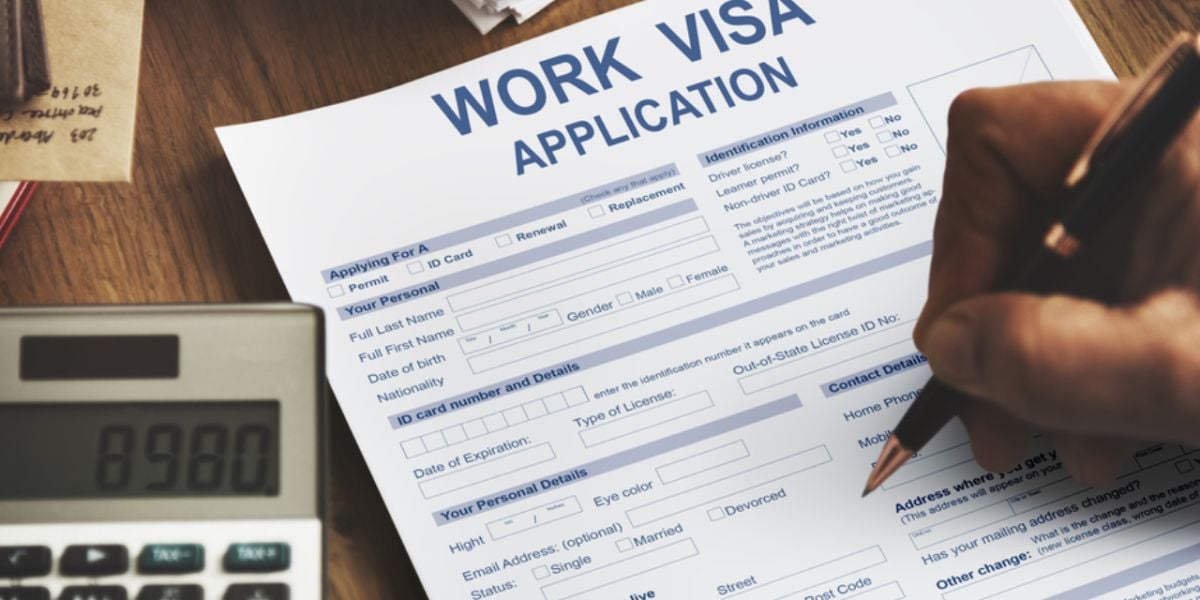
Finding legal work in Brazil can be difficult. But it's possible if you meet certain specific qualifications and obtain a signed work contract from a company that'll sponsor you. However, be sure to begin your job search from your home country. It's not advisable to move to Brazil and assume that you'll find a job after you've relocated.
Preliminaries
Understand that work visas (autorizaçaoes de trabalho) aren't easy to obtain. Jobs here are generally awarded first to qualified Brazilians, and any company wishing to employ a foreigner may be required to prove that a skilled Brazilian citizen couldn't be found. In effect, this means that typically only individuals with certain skill sets, technical or managerial in nature, will obtain work visas.
Good to know:
Many expats working in Brazil were transferred here by companies they already worked for. It's more difficult to find a company to hire you specifically to work in Brazil.
The types of positions for which work visas are most often issued include:
- Professors, researchers, and scientists
- Professionals who offer technical assistance and/or technology services
- Administrators, managers, directors, or executives
- Professionals representing a foreign financial institution
- Artists or sportspeople
- Crew of a cruise ship
- Oil platform personnel
Expect to deal with a fair amount of bureaucracy during the application process. However, the company sponsoring you will likely handle the bulk of the application process and pay the associated fees.
Types of work visas
There are three main types of work visas in Brazil: VITEM V, VITEM II, and permanent work visa.
VITEM V Visa (Temporary Visa)
The VITEM V is a temporary work visa and it's valid for two years, provided the worker remains in the same position. It's the most common working visa that expats get, so for the purposes of this article, the information given will be in reference to the VITEM V visa, unless otherwise specified. The VITEM V visa is typically given to those who will work in Brazil for a work contract in research skills, technical assistance, or other professional services.
You'll need to have a contract of employment with a company in Brazil, which submits the contract along with any other forms required by Conselho Nacional de Imigração (National Council for Immigration) and the Ministry of Labor and Employment in Brazil.
Once the authorization is approved, the Ministry of Labor and Employment informs the Brazilian Ministry of Foreign Affairs, which will authorize the concession of the work visa via the Brazilian Consulate.
Good to know:
This visa is renewable for another two years, so long as you apply no later than 30 days before your initial visa expires. The renewal process is easier than the initial application process. In some cases, the VITEM V may be converted to a permanent visa after renewal (so in total, it takes four years to get a permanent visa).
VITEM II Visa (Temporary Visa)
The VITEM II visa is also a temporary visa. However, it's for much shorter purposes, as it's intended for business trips.
The caveat is that if you enter Brazil on a VITEM II visa, you can't accept money from Brazilian companies, which essentially means you can't work directly for them. Instead, you'll most likely work with them, and you'll work under a company from your country of origin or elsewhere.
What's great about this visa is even though it's for shorter purposes, it's valid for up to 10 years. So once you've applied for it, you won't have to worry about reapplying for another decade. Also, this visa allows you to be in Brazil for up to 90 days a year, so it's quite flexible for business trips and other related purposes.
Permanent Work Visa
The permanent work visa (visto permanente) is for international workers who have long-term contracts, such as scientists, researchers, and highly qualified engineers. The permanent visa allows you to work in Brazil for an indefinite period, but few will qualify for this type of visa. If you wish to apply for one, you're encouraged to inquire at the Brazilian consulate serving your area for details.
Visa applications can be made online via Brazil's Ministry of Foreign Affairs. There will be fees, which vary depending on the type of visa applied for and the applicant's country of origin. Typically, the applicant's employer will pay these fees.
Important:
The information presented above represents the standard procedures. Certain restrictions may apply for some professions, while others may require additional steps. You must consult the Brazilian government websites for more information before proceeding. Most Brazilian government websites have English versions.
Requirements for the different work visas
Now that you know a little more about each type of work visa, you're probably curious about what each one requires.
Earlier, we already mentioned that Brazilian employers need to show that they've tried hiring natives and that they were unsuccessful in doing so before hiring from outside the country. You'll also need to get a temporary or permanent residence visa before you can even apply for a work visa. And you'll need to have the job lined up already, as the employer will be responsible for starting your work visa application.
In addition to the above requirements, here are the specific requirements for each visa. Do note that if you change jobs, then you'll have to apply for new permits each time you switch positions and employers.
VITEM V Visa
To get a VITEM V visa, you must have at least two years of relevant professional experience in that particular field. In addition, you need to have a minimum of nine years of education. If you don't, then either of the following can work in place of it: a relevant university degree plus a year of professional experience in the field, or a relevant post-graduate degree with no professional experience required.
VITEM II Visa
If you need a VITEM II visa, you need to ensure that your passport is valid for at least six months prior to application. You'll also need a signed letter from your employer or sponsoring company (the letter must have a company letterhead). This letter should describe what your position is in the company, as well as what you intend to do in Brazil, business-wise. Your employer should also vouch for you that you'll return to your country once business is finished in Brazil.
Permanent Work Visa
The permanent work visa is available to expats who can get permanent residence in Brazil. Professions eligible for this work visa include professional researchers and scientists, so long as your work will span over two years. If you're an investor, you can apply for this work visa as well. You need to invest over $50,000 (USD) as an individual or $200,000 as a company, director, or manager.
How to apply for a work visa
The process to apply for a work visa will depend on which one you're going for. However, for all applications, you'll need to submit your passport, which should be valid for at least another six months. You'll also need to send in two application forms, two passport-sizes photos, and a police report that confirms you have a clean record. Do note that this police report can't be older than three months, so make sure you get the timing right for your work visa application.
Here are the general steps for each type.
VITEM V Visa
While your employer is responsible for starting the work visa application process, this doesn't mean you don't have anything to do yourself. In fact, both the employer and employee are responsible for seeing the application process through.
First, your employer will gather documents from you. They must be legal entities in Brazil, as those are the only ones allowed to create and submit visa applications. The information they'll need include:
- Your addresses in Brazil
- Passport (authorized copy)
- Proof of education (this can include academic transcripts, reference letters, and your resume)
- Proof of professional experience
They'll also submit these documents on your behalf:
- Applicant and candidate form
- Proof of registration with the Commercial Board or Public Civil Registry (company statutes or contractual alterations)
- Proof of appointment of legal representative for you
- Copy of the National Legal Entity Registration Card
- Signed document saying the employer will be fully responsible for your medical and hospital expenses
- State revenue collection guide (GRU) showing proof of payment for your immigration tax
- Proof the employer is paying you on an equal level for the same role in the company
- Signed employment contract
- The work permit application itself
They'll then get these documents and information translated into Portuguese, and then send them to the General Coordination of Immigration Department, which will then forward this information to the Ministry of Foreign Affairs. They'll then notify the Brazilian embassy or consulate in your country that you're ready to start the work visa process and authorize them to process your paperwork.
From here, you'll have to do the work. You'll have to gather up the necessary documents and submit them to your local Brazilian embassy.
VITEM II Visa
To apply for a VITEM II Visa, you'll need to do so at the Brazilian embassy or consulate in your country. However, you'll probably have to submit the application in person, as many embassies and consulates won't accept it by mail. It should take just two business days to get your VITEM II visa; if you mailed it in, then this jumps up to around 15 business days.
Depending on where you're from, you might also have to submit proof that you've been vaccinated against yellow fever.
You'll have to submit most of the same documents as you would with the VITEM V visa.
Permanent Work Visa
To apply for a permanent work visa, you'll have to submit the documents listed above in the VITEM V visa section. In addition, you'll need to submit your birth certificate and passport to apply. And if applicable, you'll also need your marriage certificate.
Work visa fees
If you're wondering about work visa fees, there's no straightforward answer here. The fees will depend on where you're from and exactly which visa you're applying for.
For example, if you're a US citizen and you're applying for a VITEM V work visa, then this will cost you $290. But if you're applying as a citizen of any other country (besides the UK), then it'll cost you $100. For a UK citizen, you'll pay $100 for authorized stays of up to 180 days and $215 for authorized stays longer than 180 days.
How long the work visa process takes
Once you've submitted all the necessary paperwork, then it's time to wait. More specifically, it can take anywhere between 30 to 90 days to get approval, from start to finish of the process.
To check on your work visa's progress, you can do so on the Ministry of Labor and Welfare's website. But to find out if you've been approved or not, you'll have to contact the Visa Department at your Brazilian consulate. They'll receive news of approval about a week after the authorization is published in Brazil.
If your application is deemed incomplete, it'll be returned to you. Do note that you'll have to pay for the fees associated with doing so. The Brazilian consulate can also request more information and documents, so make sore you submit these things in a timely fashion.
What to do after your work visa approval
Once you get the VITEM V work visa, you must register with the Federal Police. This has to be done within 90 days of arrival in Brazil, regardless of your length of stay. If you fail to do so, you'll face daily fines, which can quickly add up.
Also, you should know that just because you have a residence permit and a work visa, that doesn't guarantee you the right to enter or stay in Brazil. The Brazilian immigration authorities can cancel these things at any time at their discretion, so you need to stay on top of things to avoid this scenario from happening.
Useful links:
We do our best to provide accurate and up to date information. However, if you have noticed any inaccuracies in this article, please let us know in the comments section below.








